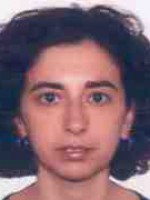abstract
Highly fluorinated molecules have proved to be versatile compounds that can be used for a large number of applications in different research fields including medicine, industry and environment. In this work we have used the soft-SAFT equation of state in its most general form, namely with the inclusion of a renormalization-group treatment and in combination with the van der Waals density gradient theory, to characterize several perfluorinated compounds in a systematic manner, and with the same tool. For this purpose, densities, vapour pressures, surface tensions, heat capacities and speed of sound were evaluated at different thermodynamic conditions including the critical region. The molecular parameters of the equation were obtained by fitting to vapour-liquid equilibrium data and used, in a transferable manner, to calculate the remaining properties. The specific renormalization-group treatment allowed quantitative agreement with experimental data far from and close to the critical point, with a unique set of parameters. The density gradient theory treatment enabled a precise evaluation of the surface tension, reproducing the low values experimentally observed. The transferability power of the equation allowed not only a very good description of phase and interfacial properties, but also a good accuracy when calculating derivative properties in one-phase equilibrium regions, in a purely predictive manner. (C) 2009 Elsevier B.V. All rights reserved.
keywords
EQUATION-OF-STATE; ASSOCIATING FLUID THEORY; DIRECTIONAL ATTRACTIVE FORCES; DENSITY-FUNCTIONAL THEORY; LENNARD-JONES CHAINS; VAPOR-LIQUID INTERFACES; SURFACE-TENSION; RENORMALIZATION-GROUP; PERTURBATION-THEORY; GRADIENT THEORY
subject category
Thermodynamics; Chemistry; Engineering
authors
Dias, AMA; Llovell, F; Coutinho, JAP; Marrucho, IM; Vega, LF
our authors
acknowledgements
This work has been partially financed by the Spanish government, Ministerio de Ciencia e Innovacion, under projects CTQ2008-05370/PPQ NANOSELECT and CENIT SOST-CO2 CEN2008-01027 (a Consolider project and CENIT project, respectively, both belonging to the Ingenio 2010 program). Additional support from the Catalan government, under projects SGR2005-00288 and 2009SGR-666, is also acknowledged.



